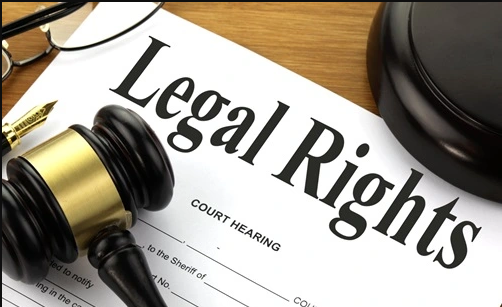Understanding Your Rights: A Simple Guide to Common Legal Issues
In everyday life, legal issues can arise when we least expect them—be it at work, in a business transaction, during a traffic stop, or in interactions with landlords, neighbors, or even family members. Understanding your basic legal rights not only helps you protect yourself but also empowers you to make informed decisions when problems occur. This guide aims to simplify some of the most common legal areas individuals encounter and provide clear, practical insights to help you navigate them confidently.
1. Your Right to Legal Representation
One of the most fundamental rights, especially in criminal law, is your right to legal representation. In many countries, including the United States and the UK, if you are arrested or charged with a crime, you have the right to remain silent and the right to an attorney.
Why it matters:
Legal language can be complex and intimidating. A qualified lawyer ensures your rights are protected and helps you avoid incriminating yourself unintentionally.
Quick Tip:
Always ask for a lawyer before speaking to law enforcement. It’s your legal safeguard.
2. Employment Rights You Should Know
Whether you’re a full-time employee, part-time worker, or freelancer, you have certain rights under labor laws. These often include:
- The right to a safe working environment
- Protection from discrimination and harassment
- Entitlement to minimum wage and overtime pay
- Family and medical leave rights
- The right to organize or join a union
Why it matters:
Understanding your rights at work can help you identify unlawful treatment and take action if necessary.
Quick Tip:
Keep records of your hours, payments, and any incidents at work. This documentation can support your claims if disputes arise.
3. Tenant Rights and Landlord Responsibilities
If you rent a home or apartment, you’re covered by tenant laws that protect your right to a safe, habitable living environment. These rights often include:
- Protection against wrongful eviction
- The right to privacy (landlords must give notice before entering)
- The right to repairs and maintenance
- Security deposit return procedures
Why it matters:
Disputes with landlords are common, and knowing your rights can prevent you from being taken advantage of.
Quick Tip:
Always read your lease agreement carefully and get everything in writing, especially maintenance requests.
4. Consumer Rights in Everyday Transactions
Whenever you buy a product or service, consumer protection laws help ensure you’re treated fairly. Key consumer rights include:
- The right to receive goods that match their description
- Protection from false advertising
- A refund or replacement for defective products
- The right to cancel certain contracts (e.g., online purchases or door-to-door sales)
Why it matters:
You deserve fair treatment and honest information when spending your money.
Quick Tip:
Always keep receipts and proof of purchase. They’re essential for resolving disputes or claiming warranties.
5. Privacy and Data Protection
In the digital age, your personal data is constantly being collected—from social media to online shopping. Many countries now have strict privacy laws (like the GDPR in Europe or CCPA in California) to give you control over how your data is used.
Your rights may include:
- Being informed about how your data is collected
- The right to access your own data
- The right to have your data deleted or corrected
- Protection from unauthorized sharing or selling of your data
Why it matters:
Data misuse can lead to identity theft, spam, or even financial fraud.
Quick Tip:
Review privacy settings on your apps and devices, and be cautious about what personal information you share online.
6. Traffic Stops and Your Rights
Being stopped by law enforcement while driving can be nerve-wracking, but knowing your rights can ease anxiety and prevent legal trouble.
You typically have the right to:
- Remain silent
- Refuse a search of your car without a warrant (unless there’s probable cause)
- Record the interaction (as long as it doesn’t interfere with police activity)
- Ask if you are free to leave
Why it matters:
Misunderstandings during traffic stops can escalate. Clarity about your rights helps ensure the interaction remains lawful and respectful.
Quick Tip:
Stay calm and respectful. Comply with basic identification requests, but know when to exercise your right to silence.
7. Family Law: Marriage, Divorce, and Custody
Family-related legal issues are deeply personal but often involve legal complexities. Common areas include:
- Marriage and prenuptial agreements
- Divorce and property division
- Child custody and visitation rights
- Child and spousal support
Why it matters:
These situations often involve emotional decisions, but legal protections ensure fairness for all parties involved.
Quick Tip:
Seek legal counsel early if you’re going through a divorce or custody dispute to protect your long-term interests.
8. Understanding Civil vs. Criminal Law
Many people confuse civil and criminal law, but they deal with different types of legal problems.
- Criminal law deals with actions considered harmful to society (e.g., theft, assault). Penalties can include jail time or fines.
- Civil law deals with disputes between individuals or entities (e.g., contract disputes, property issues, family matters). Penalties usually involve monetary compensation.
Why it matters:
Knowing the difference helps you determine what kind of lawyer you need and what legal outcomes to expect.
Quick Tip:
Even civil cases can result in serious consequences, so don’t ignore legal notices or summons.
9. Small Claims and Legal Disputes
If someone owes you money, damaged your property, or breached a contract, you may be able to resolve the issue in small claims court. This court is designed for simple cases without needing a lawyer.
Why it matters:
Small claims court offers an affordable way to resolve disputes without the complexity of higher courts.
Quick Tip:
Prepare well. Bring documents, receipts, contracts, or photos that support your claim.
10. When to Seek Legal Help
While understanding your rights is crucial, knowing when to consult a lawyer is just as important. Some situations that often require legal advice include:
- You’re being sued or arrested
- You’re drafting or signing a complex contract
- You’re involved in a car accident with injuries
- You’re buying or selling property
- You’re facing discrimination or harassment
Why it matters:
Trying to handle complex legal matters on your own can lead to serious consequences or missed opportunities for justice.
Quick Tip:
Many law firms offer free initial consultations. Don’t hesitate to seek professional guidance early.
Final Thoughts: Knowledge Is Legal Power
Legal issues are part of life, but they don’t have to be overwhelming. When you understand your basic rights and responsibilities, you gain the confidence to stand up for yourself, avoid mistakes, and make better decisions. Whether you’re dealing with a landlord, a job issue, or an unexpected legal dispute, knowledge is your first and most powerful defense.
Keep learning, stay informed, and remember: your rights matter.


